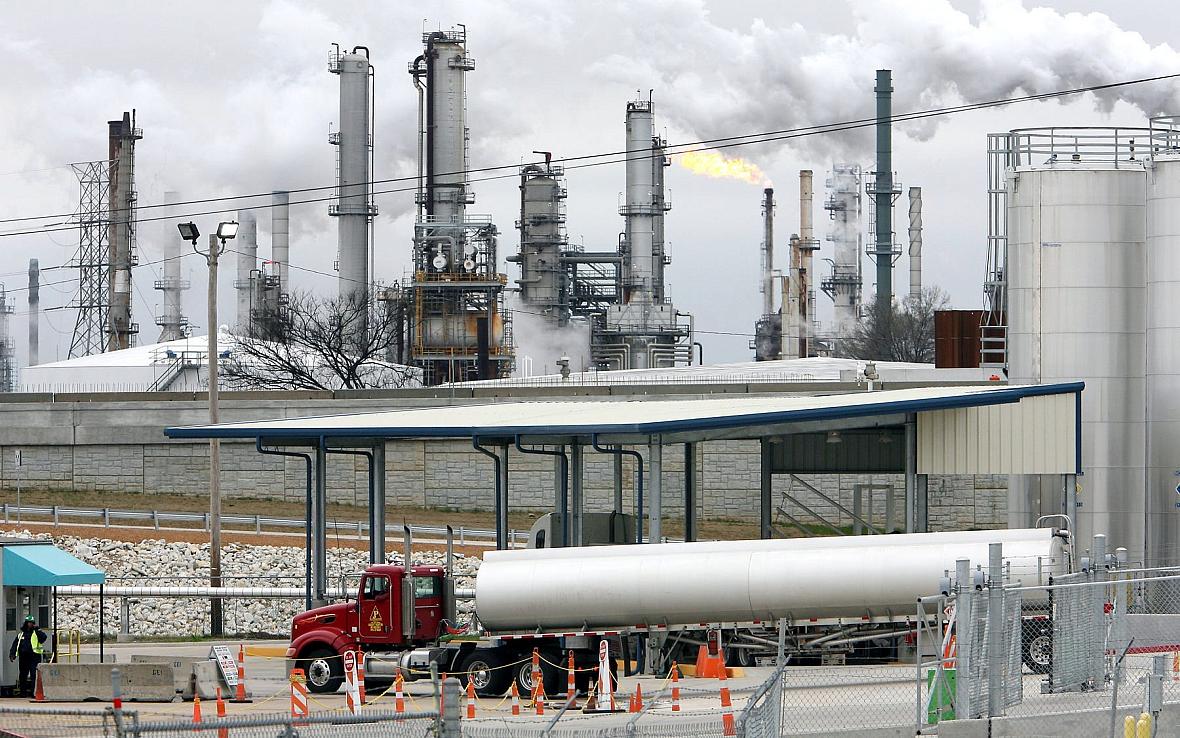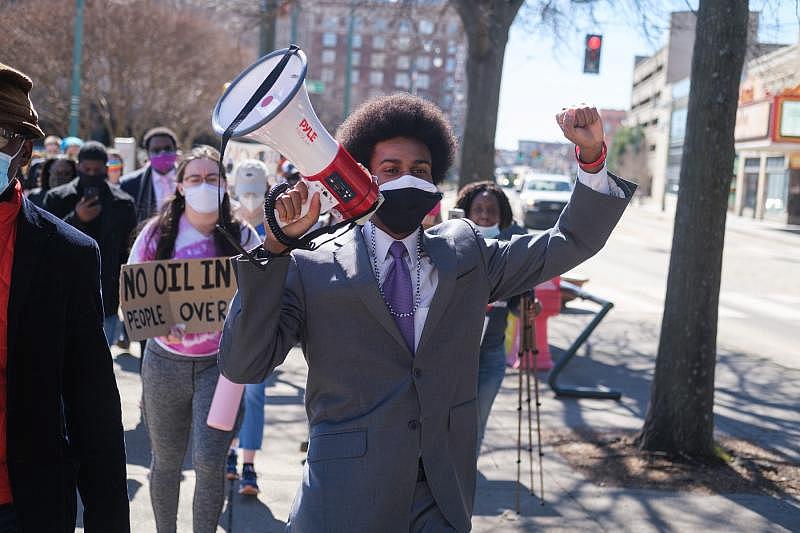Byhalia pipeline: Toxic refinery pollution, monitoring blind spot in southwest Memphis
This story is part of a larger project led by Sarah Macaraeg, a 2019 Data Fellow who is investigating the disproportionate number of asthma diagnoses and severe symptoms among Memphis children.
Other stories include:
5 things to know: How polluted streams interact with the Memphis Sand aquifer
Near Byhalia pipeline planned connection point, Valero leaked 800 gallons of crude oil in 2020
Toxic air. Insufficient monitors. Why Memphis families fighting Byhalia pipeline have had enough
More than 100,000 people in Shelby County are facing a pandemic without health insurance
To halt 'fast-track' Byhalia pipeline permit, Memphis groups file lawsuit in federal court

Tanker trucks refill at the Valero Refinery facility at Rivergate Industrial Port in south Memphis.
DAVE DARNELL/THE COMMERCIAL APPEAL
The proposed Byhalia Connection pipeline, a joint venture of Plains All American Pipeline and the Valero Energy Corp., set off an environmental justice movement that's picked up steam in Memphis and around the country, as Black families from southwest Memphis square off with Big Oil.
Running atop the city's pristine drinking water supply, the 49-mile Byhalia pipeline would cut through predominantly Black communities on its way to a terminal just over the Tennessee border in Mississippi, where Valero leaked 800 gallons of oil in January 2020.
Delving into Byhalia's other planned point of connection, the Valero Memphis refinery, a Commercial Appeal investigation unpacks the air pollution picture in southwest Memphis, featuring the stories of families for whom the pipeline is just the beginning of seeking answers on pollution-related health effects and part of a larger fight for environmental justice.
In response to multiple questions, a Valero spokesperson emailed a succinct reply: "It is Valero’s policy to not comment on operations."
Here are five key takeaways:
Air pollution hotspot and monitoring blind spot in southwest Memphis
Of all emissions Shelby County facilities reported in 2017: Sites in southwest Memphis accounted for 94% of 6.6 million total tons of six "criteria" air pollutants in the most recent National Emissions Inventory, compiled by the Environmental Protection Agency every three years.
Although the dominant wind pattern in Shelby County points south, ambient air quality monitors are placed Downtown, in Frayser, East Memphis and Millington.
An expert who led a study of monitor placements in the EPA's network said monitors in some cities miss areas of heavy pollution.
County will analyze placement of air monitors
County Mayor Lee Harris said among other initiatives planned to address environmental justice and air pollution, such as a mass transit proposal, the county will analyze the air monitors' placements.
The Valero refinery was the top stationary source of toxic air pollutants in the county in the 2017 emissions inventory.
Companies may lack sufficient insurance
Valero and Plains each disclosed in recent Securities and Exchange Commission filings that they may lack sufficient insurance to fully cover the cost of potential liabilities, including environmental clean-up costs. Neither responded to request for comment on what assurance the companies can provide in the event of an incident in Memphis.
Both companies also received coronavirus stimulus benefits according to the watchdog group BailOut Watch.
Valero has historically received a range of local supports
Valero’s refinery operations have historically enjoyed a range of supports since the company purchased the refinery site in 2005, including tax breaks; local backing on state legislation the company sought to kill; and multi-million-dollar improvements to the highway interchange and Mississippi River harbor on which the company relies.
Families bring health effects of pollution to the fore
Justin Pearson leads chants during a march against the construction of the Byhalia Connection Pipeline, Tuesday, Feb. 23, 2021, in Memphis, TN. BRANDON DAHLBERG / FOR COMMERCIALAPPEAL.COM
Regarding cancer risk specifically, a team of University of Texas researchers recently published a study of 6.3 million people which found proximity to a refinery increased risk of cancer diagnoses.
The CA spoke with families whose loved ones have struggled with asthma and died of cancer.
"My grandmother died at 64 and I wish she was here to 80 and 90," said Jaylen Pearson.
[This story was originally published by Commercial Appeal.]

